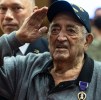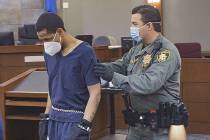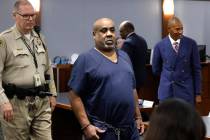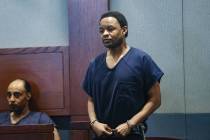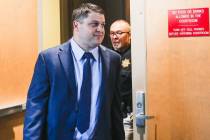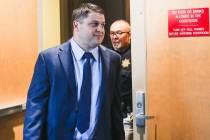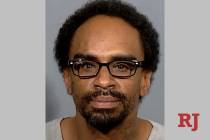Civil rights lawsuit filed in Trevon Cole shooting by police
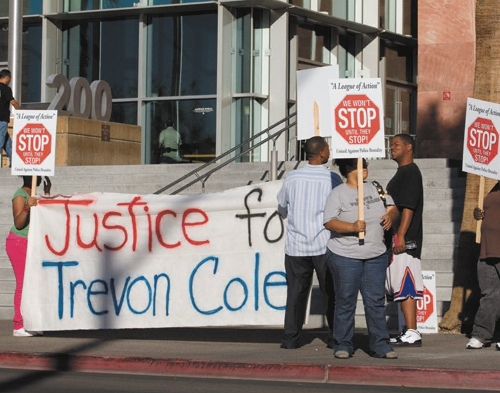

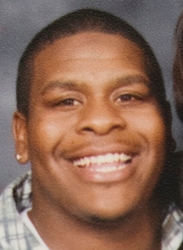
A federal civil rights lawsuit was filed Wednesday on behalf of the family of Trevon Cole, the unarmed man who was killed last year during a Metropolitan Police Department drug raid.
The lawsuit seeks more than $10 million in damages from the department and names as defendants Detective Bryan Yant, who shot Cole; Sgt. John Harney, who was Yant’s supervisor; and Clark County Sheriff Doug Gillespie.
Attorney Andre Lagomarsino, who filed the lawsuit, said neither he nor Cole’s family would comment "out of respect to the proceedings."
A police spokesman said department officials do not comment on lawsuits or pending litigation.
The lawsuit cites numerous mistakes made by Yant that led to the shooting, including Yant’s use of false information on the affidavit that led to the nighttime raid of Cole’s one-bedroom apartment.
Cole, 21, was shot once in the face and died during the June 11 raid. A jury ruled the shooting justified, causing an outcry.
The lawsuit also accuses Gillespie and the department of failing to protect the public from Yant, who had killed one person and wounded another in separate incidents during his previous nine years with the department.
The lawsuit includes more allegations, that Yant and the other members of his squad drank alcohol on the job and that the presence of a camera from the television show "Cops" increased the danger to Cole.
"Cases like that of Trevon Cole, which could have been handled by simply handcuffing a defendant and taking him into custody without incident, were transformed into armed raids and confrontations for the sake (of) good publicity and higher ratings," the lawsuit states.
During the inquest it was revealed that police allowed Langley Productions, producers of "Cops," to record Cole’s earlier sale of marijuana to an undercover officer. The cameras were not present for the apartment raid.
Cole’s killing was one of two police shootings in 2010 that sparked public outrage and prompted reform of the coroner’s inquest process.
The other case involved the fatal shooting by three officers of Erik Scott, a U.S. Military Academy at West Point graduate, outside a Summerlin Costco store. Scott’s family filed a lawsuit in that case last year.
The killing of Cole was more troubling to police department officials because it involved a minor crime and serious errors by Yant that led to the shooting.
Undercover narcotics detectives with Yant’s team purchased small amounts of marijuana from Cole three times. Yet when Yant drafted an affidavit to a judge seeking a search warrant, he said their suspect had "a lengthy criminal history" of drug crimes in Texas and California.
Cole had no such history, and it is believed Yant confused him with a man by the same name but with a different age and dramatically different physical description.
Yant and his team also committed several mistakes during the execution of the search warrant, including allowing an unauthorized officer to participate.
Yant’s flashlight also malfunctioned, leaving the detective staring into a dark bathroom where Cole was flushing marijuana.
During the inquest, Yant said Cole stood up from the toilet and turned toward him aggressively, prompting him to shoot, but his statements contradicted the physical evidence and the testimony of officers who were there.
Cole was unarmed and had no weapons in his apartment.
After the incident the police department also investigated Yant for falsifying documents in an unrelated drug case. That case involved allegations that the suspect sold drugs to an undercover informant even though the alleged dealer was out of the country at the time.
Yant was disciplined this year and relegated to desk duty with no interaction with the public after an internal investigation found he violated several department policies.
Contact reporter Lawrence Mower at lmower@reviewjournal.com or 702-383-0440.




